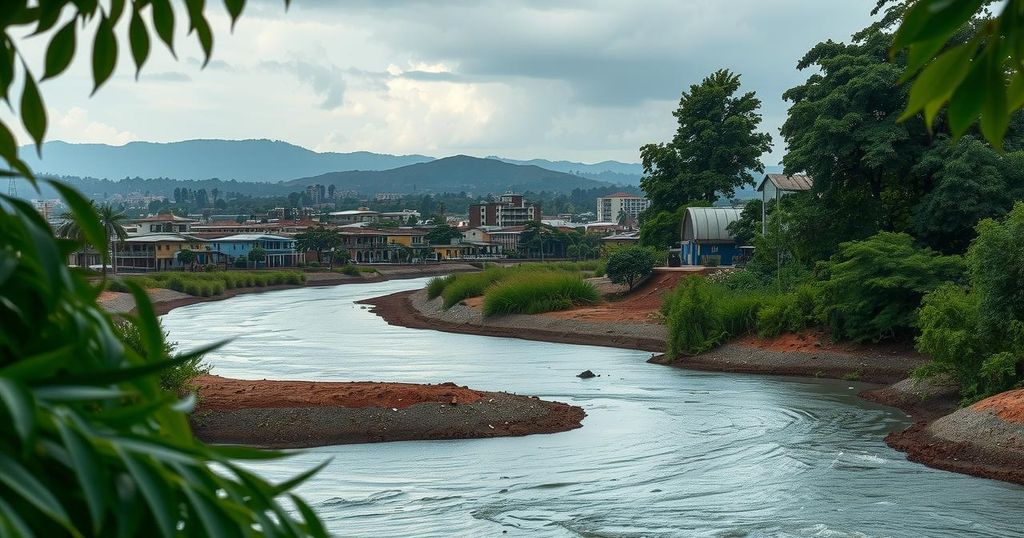Rwanda-Backed Rebels Advance as Bukavu Faces Chaos and Displacement

The situation in Congo’s Bukavu is dire as Rwanda-backed M23 rebels advance, driving thousands to flee while violence and looting ensue. Tensions rise following chaotic scenes and a significant humanitarian crisis emerges amidst international calls for a ceasefire. The conflict risks destabilizing the region further, prompting discussions among African leaders and the international community.
In Goma, Congo, a sense of panic enveloped Bukavu, the region’s second-largest city, as thousands of residents and soldiers fled to avoid advancing Rwanda-backed rebels, primarily the M23 group. Following reports of M23 fighters entering Bukavu’s outskirts, numerous residents attempted to leave, with some resorting to looting as the chaos unfolded. Residents later reported a somber quiet, preparing for the uncertain future.
Although M23 did not seize complete control of Bukavu, tensions remained high after they had previously captured an airport nearby. Gunfights ceased when Congolese troops retreated southward, leading to a mix of looting and lawlessness until the fighting stopped. Residents expressed shock at the destruction, likening the situation to a vacuum of security resulting from the army’s departure.
Amid the unrest, Lawrence Kanyuka of the Congo River Alliance urged residents to maintain control and composure, while the newly appointed self-proclaimed governor of Bukavu encouraged collaboration among citizens to restore order. The M23 group, backed by approximately 4,000 Rwandan troops, has expanded its territorial control, significantly challenging the Congolese government.
International responses have begun to materialize as the unrest claims nearly 3,000 lives and leaves 350,000 people displaced. French President Emmanuel Macron appealed for immediate action, demanding a ceasefire and M23’s withdrawal, which could affect international attention towards the conflict.
The conflict’s escalation prompted discussions at the African Union summit, where UN Secretary-General António Guterres warned of potential regional conflict, urging for the respect of Congo’s sovereignty. Regional tensions persist, raising concerns about the spillover effects of this situation as various rebel factions seek power across eastern Congo.
Ugandan forces continue their aggressive stance against other rebel groups in the region, with a warning directed towards opposition forces in Ituri, emphasizing that resistance will be met with military action. The landscape remains fraught with instability, drawing attention from both local and international leaders as the humanitarian crisis deepens.
The situation in eastern Congo, particularly in Bukavu, is characterized by chaos due to the advance of Rwanda-backed M23 rebels, resulting in mass displacement and fear among residents. Reports of looting and violence abound as Congolese troops retreat, leaving a power vacuum. International leaders demand immediate action to restore order, underscoring the regional implications of the conflict and emphasizing the need for a ceasefire and respect for Congolese sovereignty.
Original Source: www.pbs.org








